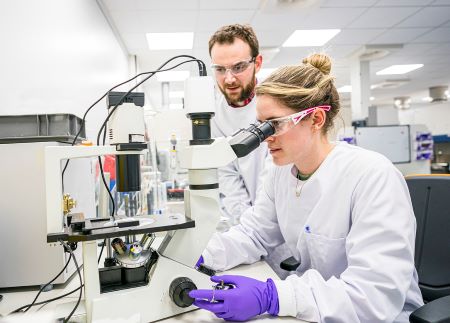Building a high-performance team: key learnings from the pandemic

There’s a saying about necessity being the mother of invention. It’s a loose translation of a Plato line that says, ‘our need will be the real creator’. When we plunged into the first lockdowns, it wasn’t the easiest of times (to say the least), but it was pretty quickly apparent that our need was to adapt our ways of working. And fast. The key, I think, was really in focusing on a positive team culture and using open communication to find options that worked for everyone.
Our key learnings
Working from home can mean more freedom, more time with family, and less time and money spent on commuting. But it can also lead to a blurred work-life balance, fewer interactions with colleagues, and greater struggles with motivation and mental health. I personally missed those ad-hoc chats outside of meetings, many of which helped us process our thoughts or brainstorm new ideas. And I missed the ease of building strong working relationships by bouncing off each other at meetings and over team lunches and coffee breaks.
But, with those in-person options removed, we needed to swiftly and carefully identify how our own teams worked at their natural best. One size definitely didn’t fit all, because every team is different. So it was important to implement programs and trainings that helped all colleagues feel supported and enthusiastic about their particular new working rhythm.
Moving forward
As we look ahead, we have an opportunity to build on this experience. We want all team members to retain and be able to express their individuality, while still having a sense of belonging in the company. At Janssen, our company Credo, as well as our individual team values, provides a brilliant compass and reinforces the purpose behind what we do. In the Infectious Diseases & Vaccines team, we constantly encourage each other to share personal opinions and ideas. And to challenge one another. A positive, open and collaborative culture equips us well for our often rapidly shifting area of work, and enables us to evaluate and adapt our processes and strategies, rather than just react.
Our focus is on productivity, not presenteeism. By allowing colleagues to determine their own optimal ways of working, our team can be more consistently agile and entrepreneurial.
Adapting to effective hybrid working isn’t always easy, so we’ve developed bespoke training for our leaders to help them run truly flexible teams and make sure everyone feels equally listened to, supported and inspired.
And we have committed to continually promote a culture of compassion and empathy. It was crucial during the pandemic, but we must keep on checking in on each other and watching out for signs of illness (both physical and mental), exhaustion and isolation. Kindness really is key. And reinforcing kindness and positivity can work wonders for motivation and mental resilience, and ultimately help us be more effective and efficient in our work.
A great opportunity
There are always ways we can improve, of course, but I’m so proud of our team and the positive culture we’ve grown together. Putting both our team values and individuals’ interests at the forefront really helped us navigate this hugely challenging time. Our working lives will probably never be the same again. And that’s a good thing. We now have a great opportunity to embed these learnings in a virtuous cycle of adaptation, and keep creating and recreating according to our specific team needs.


